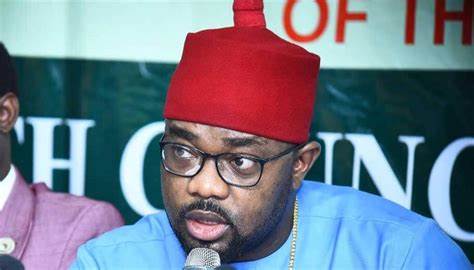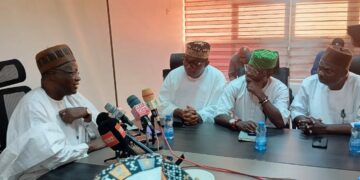The chairman of the House Committee on Petroleum Resources (Downstream), Hon Ikenga Ugochinyere, has said the committee has commenced the re-investigation into the NNPC Ltd acquisition of OVH Energy Marketing’s downstream assets and refinery upgrade.
He stressed that the current disputes between the Dangote Refinery, petroleum marketers and labour unions, particularly tanker drivers under the National Union of Petroleum and Natural Gas Workers (NUPENG), are issues that must be addressed without discouraging investment in Nigeria’s oil and gas industry.
Speaking at the end of a three-day stakeholder retreat in Lagos, the Chairman, Ikenga Imo Ugochinyere disclosed that the committee has received a lot of revelations from workers, refinery operators, and agencies such as NETCO and the Petroleum Training Institute (PTI), as well as submissions from the private sector and stakeholders in refining.
While referring to the ongoing disagreements involving Dangote Refinery and labour groups, he said, “We feel that if these things are not handled, it can create instability in the downstream sector.”
The lawmaker acknowledged the gravity of the disputes, but emphasised the importance of handling them in a manner that preserves Nigeria’s image as an attractive destination for energy investment.
“We try to balance labour issues and other competitive business issues, also to ensure that we do not create an impression that would make other investors who want to come in be worried about the safety of their investment,” he stated.
Meanwhile, the committee said it is also analysing submissions related to the Petroleum Industry Act (PIA), with a focus on clarifying integrated operations and reducing regulatory overlap between the Nigerian Midstream and Downstream Petroleum Regulatory Authority (NMDPRA) and the Nigerian Upstream Petroleum Regulatory Commission (NUPRC).
According to the chairman, defining roles between these regulators is critical to investor confidence and long-term policy certainty.
He said, “What we’ve got at present is deleting the NDPRA C3 statutory rule of exploration, development, and production, and preserving NDPRA-critical wholesale supply function to help bolster national energy security, as NUPRC allocates the basic good value to local refineries, while NDPRA monitors utilisation of the same based on local refineries.
“Now, ensuring clarity and empowerment for the distinct regulatory licences, petroleum liquid and gas wholesalers, who will then be appropriately captured in the refinery revenues of the inter-database group of payment of companies’ income tax in line with applicable laws.
“Preventing regulatory uncertainty and spurring investment in gas monetization, local refineries, and other companies doing business in Nigeria, is in line with the Presidential Directive,” he noted.
Key among the committee’s proposals is the streamlining of licensing for liquid and gas wholesalers, enhancing oversight of land terminals, and ensuring open access facilities to encourage fair participation and revenue generation.
The committee chair also hinted at upcoming public disclosures, following technical reviews of submissions from refinery owners and key players regarding the supply and utilisation of petroleum products, as well as the submission of Product Supply and Trading Operations Certificates (PSTOC).
“All these efforts are aimed at providing preliminary certainty on integrated operations to support investment across the petroleum industry by the region,” he said.
He added that clearer mandates for regulatory bodies will help unlock up to $500 million in annual investment potential, while also ensuring better accounting practices, infrastructure use, and taxation.
“The losses of oil and gas are increased by the NDPRA, which can enable an estimated $500 million per annum water-off-tariff investment by financing exporters and importers to do more business in Nigeria,” he noted.





